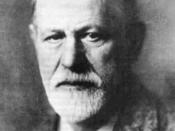People's beliefs about their health and wellbeing are not fixed, but are constantly changing, some people see health as being the absence of illness; others have a contradictory view that being healthy means to be able to cope with everyday stresses in order to be able to get on with life in general. Using case studies of cancer patients receiving treatment from both CAM and orthodox medicine, this essay will identify and discuss people's beliefs about health and healing and how their views can influence the therapeutic relationship, it will also discuss what is meant by the therapeutic relationship. This essay will then address the questions of; does orthodox medicine offer a therapeutic relationship or is the therapeutic relationship solely in the realm of the CAM practitioners? Do all users of health care benefit from a therapeutic relationship or can problems arise from a therapeutic relationship?
"Health behaviour is influenced by many factors", (Helman 2001, quoted in Chapter 6, p149), the beliefs about health care are learned throughout life and this knowledge starts in childhood and is then developed through life experiences, from information received through the media; also from the social and the cultural environment in which we live.
Friends and family also influence people's views on health and wellbeing, for example telling a person that they look very well or asking if they feel alright because they look unwell can have an affect on a persons belief about their health and wellbeing.
Health care professionals see themselves as the experts in giving advise about health and wellbeing and often disregard a persons knowledge about their bodies or their state of mind and, as often don't have the time to sit and listen to a person who has a minor ailment. Health care professionals use the model of...


